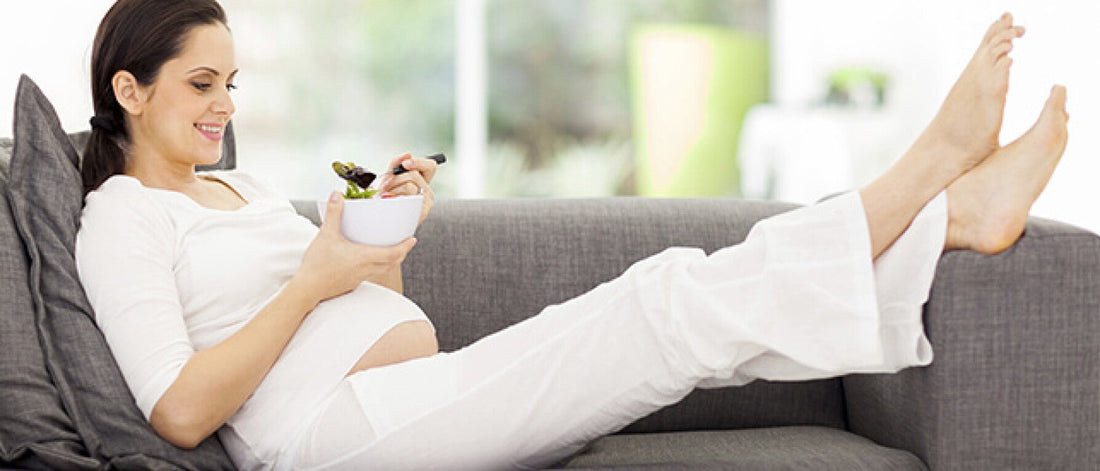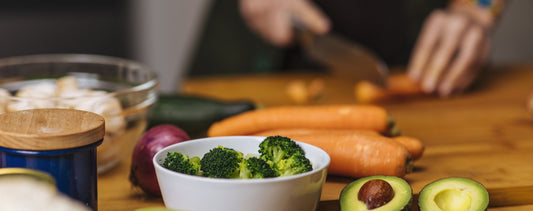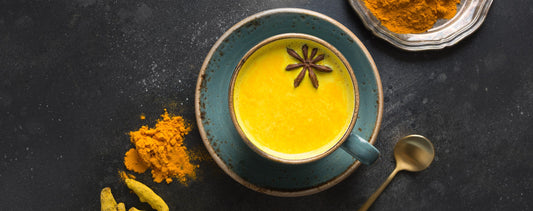When a woman gets pregnant, she usually becomes more aware of what she eats; but there is a lot of confusion regarding diet and pregnancy, especially if it’s her first baby. Pregnant women receive so much conflicting and unsolicited advice, they end up not knowing what to eat or what to avoid.
The first advice I give them is that pregnancy is not a time to “eat for two,” despite common belief. It’s true that you need an additional 200-300 calories, especially in the second and third trimesters, but these calories should be from real nutrients: whole, fresh, organic food that will help the baby grow. The focus should be on a balanced diet and not on just eating more— to ensure normal development and a controlled weight gain during these nine months.
Diet plays a huge part in a healthy pregnancy: emphasis on eating a balanced diet of whole organic foods and avoiding preservatives, pesticides, and hormones is a good place to start. A balanced diet during pregnancy means that you include all food groups on a daily basis: proteins, carbohydrates, healthy fats, minerals, and vitamins. Here’s how to get your full dose of nutrients during pregnancy to support normal development for the baby.
Since fruits also have sugar, you should limit yourself to three pieces per day.
Veggies are also a good source of iron; an important mineral for pregnancy, not only because it’s needed to form practically all tissues, but also because women are more susceptible to iron deficiencies during pregnancy, which can ultimately cause anemia. And anemia can cause preterm birth and low birth-weight. So get your extra dose of Iron by eating vegetables rich in iron, like spinach, kale and all leafy greens, broccoli, cauliflower, cabbage, and most green veggies.
Another benefit of fiber is that it helps control your blood sugar levels by regulating the release of sugar from the intestines into your body. This is very important in preventing gestational diabetes. Quinoa is a whole grain cereal that also contains a high-quality protein, important for the baby’s muscle development.
Mercury is a global sea and air pollutant, that can cause weight-related toxicity to many organs, and of course it’s important to avoid toxic levels during pregnancy, so it’s best to stick to low-mercury fish.
While a balanced, healthy diet during pregnancy does not mean “ eating for two,” it is true that you are eating for more than one; the difference relies on being more aware of the foods you consume, and eating more nutrient-dense meals and less treats, sweets, fats, and unhealthy foods.
My best advice for pregnant women is to eat a variety of different whole foods every day and add color to your plate, this way you ensure the right proportion of nutrients that you and your baby need for a balanced and healthy pregnancy.
The first advice I give them is that pregnancy is not a time to “eat for two,” despite common belief. It’s true that you need an additional 200-300 calories, especially in the second and third trimesters, but these calories should be from real nutrients: whole, fresh, organic food that will help the baby grow. The focus should be on a balanced diet and not on just eating more— to ensure normal development and a controlled weight gain during these nine months.
Diet plays a huge part in a healthy pregnancy: emphasis on eating a balanced diet of whole organic foods and avoiding preservatives, pesticides, and hormones is a good place to start. A balanced diet during pregnancy means that you include all food groups on a daily basis: proteins, carbohydrates, healthy fats, minerals, and vitamins. Here’s how to get your full dose of nutrients during pregnancy to support normal development for the baby.
Fruit
Fruit has more than 80 percent water, which can help you stay hydrated; it’s also packed with vitamins. Eating different fruits every day can help you get a variety of these vitamins. Vitamin C is especially important, as it is a potent anti-oxidant that can help avoid common pregnancy-related complications, like hypertension.Since fruits also have sugar, you should limit yourself to three pieces per day.
Vegetables
They are the source of minerals, folate, and vitamins B6 and B12. Folic acid is known to prevent birth defects, such as those affecting the brain and spinal cord.Veggies are also a good source of iron; an important mineral for pregnancy, not only because it’s needed to form practically all tissues, but also because women are more susceptible to iron deficiencies during pregnancy, which can ultimately cause anemia. And anemia can cause preterm birth and low birth-weight. So get your extra dose of Iron by eating vegetables rich in iron, like spinach, kale and all leafy greens, broccoli, cauliflower, cabbage, and most green veggies.
Whole Grains
Whole cereals, bread, and pasta give you an extra amount of fiber. During the first and second trimesters, progesterone levels rise significantly; this produces slow bowel motility, which predisposes to constipation, one of pregnancy’s most common complaints.Another benefit of fiber is that it helps control your blood sugar levels by regulating the release of sugar from the intestines into your body. This is very important in preventing gestational diabetes. Quinoa is a whole grain cereal that also contains a high-quality protein, important for the baby’s muscle development.
Healthy Fats
These fats contain omega-3, fat-soluble vitamins (A, D, E, K) and other fats like EPA and DHA. All these are essential for baby’s brain, eyes, and heart development; plus, they can help improve motor development skills in early childhood. They are also healthy for the mother-to-be, as they lower cholesterol and triglycerides levels. Healthy fats are found in chia, ghee, olive oil, coconut oil, avocados, nuts, and seeds—particularly in almonds and sunflower seeds.Dairy Products
Dairy is an excellent source of calcium, phosphorus, proteins, and vitamin D, which are very important for the baby’s development of bones, muscles, blood, and almost any other tissue. They also help to keep the mother’s bones healthy. If you don’t eat dairy products daily, you can get calcium from almond milk.Probiotics
They provide a healthy gut flora, which helps the mother’s digestive system. Probiotics also help to develop the baby’s immune system.Low-Mercury Fish
Fish is a good source of healthy fats, high-quality proteins, and iron, so try to eat fish at least twice a week. Low levels of DHA (a healthy fat found in these fish,) have been related to an increase in the incidence of post-partum depression. Low-mercury fish include wild-caught salmon and sardines.Mercury is a global sea and air pollutant, that can cause weight-related toxicity to many organs, and of course it’s important to avoid toxic levels during pregnancy, so it’s best to stick to low-mercury fish.
Legumes
Lentils, chickpeas, and beans are good source of minerals—and they provide fiber. They are also an excellent source of high-quality protein when combined with whole grain or basmati rice, this is very important for vegetarians.While a balanced, healthy diet during pregnancy does not mean “ eating for two,” it is true that you are eating for more than one; the difference relies on being more aware of the foods you consume, and eating more nutrient-dense meals and less treats, sweets, fats, and unhealthy foods.
My best advice for pregnant women is to eat a variety of different whole foods every day and add color to your plate, this way you ensure the right proportion of nutrients that you and your baby need for a balanced and healthy pregnancy.






















